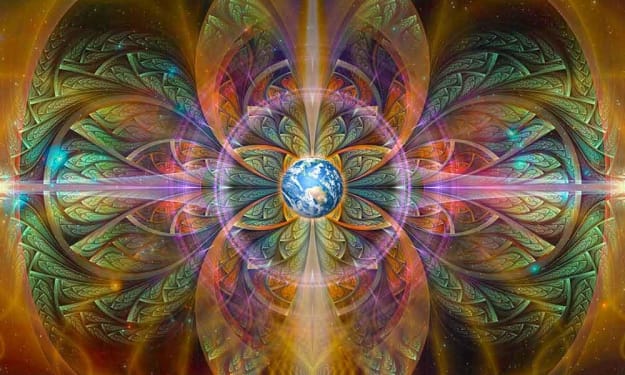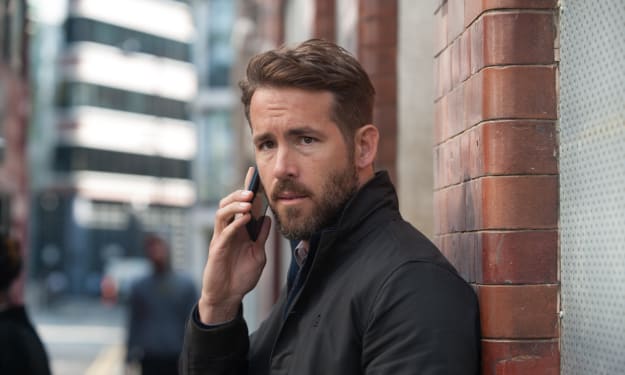Our actions matter
How you can change the world

Sometimes the amount of anger that festers inside of me when I am confronted with the deep injustices of the world is overwhelming. I feel it boiling in my chest, seeping into my lungs, crawling up my neck and holding onto my mind with a grip that makes me want to scream. So, I breathe. I breathe deep into the pain and sorrow. I welcome the misery into my heart where I know it will be healed. I speak kindly to myself and remind my mind that I, too, once was in a space where I felt needless violence was okay.
This morning's fit of passion was invoked by some folks on twitter with bold opinions that probably would shift with the sound of a crying mother, chasing after her stolen baby. The day I stood outside of a slaughterhouse and heard the terrified scream of someone fighting for their life come to an abrupt end was the day I truly became an animal rights activist.
Over the past four years, I have seen terrible things. I’ve spent hours in front of screens showing the reality of animal agriculture. I know eerie details about how they pull fur off of live foxes and the estimated number of sea creatures killed per year (which is 2.7 trillion) and how hens have been genetically manipulated to produce around 300% more eggs, which sometimes kills them before we do. The plethora of horrific knowledge tucked away in my brain is sickening. Walking through grocery stores is always difficult. I keep my head down as I pass by the aisles of corpses and watch as people gawk at the rotting flesh with rumbling stomachs.
It wasn’t always this way. I ,too, used to feel the same. I was the self proclaimed “biggest meat eater” in my family. My favorite food: steak. I would have it multiple times a week, at least. I was on the keto diet for a while as a teenager. I loved eggs, bacon, cheese, chicken. For years of my life I lived almost completely off of animal products with the occasional fruit and vegetable on the side. Simultaneously, I felt a deep love for animals. I wanted to own an animal sanctuary in fact. My vision had more to do with dogs and dolphins ( interesting combination, I know ) and less to do with cows and turkeys. At that point in my life, I’d never met any of these animals that we typically classify as “farm animals.”
Nowadays, I love to spend my time volunteering at local sanctuaries. I presently live in Iowa, so Iowa Farm Sanctuary (IFS) is my go-to. Spending time with the residents there feels nourishing to the mind, body and soul. Meeting Buddy the three legged cow was one of my favorite experiences. I quickly got on the ground with him and we ended up cuddling for a while. He has such a gentle demeanor and is always so kind. All of my favorite goats there are differently formed due to a plethora of reasons ranging from frostbite to infection. Last time, this one fella wearing a plaid sweater hung out with me in the stall I was cleaning. He sat in the sun and would look up at me when he wanted attention. He loves face scratches. Some turkeys there are quite bold. Another worker, who actually has the same name as me, was wearing green gloves that made her fingers look like worms to them. They were persistent in harassing her for some grub. Another pig, who has the tiniest legs and biggest potbelly, buried himself in a pile of hay and another pig named Missie joined him in the cuddle puddle.
These animals are incredibly charismatic. They are individuals that are expressive and unique and caring. Some love to be touched, others would like some space. Some are very loud, where others are quiet. They share many characteristics with us humans, and they are deeply forgiving of our kind. Many of them have come from abusive situations, which a majority of animals on this planet are born into. A beautiful example of this is Molly Brown, who is the definition of a survivor. At the youthful age of 21 days old she was packed into a semi truck with hundreds of others like her. They had all just been torn from their mothers to be taken to a facility that would fatten them up before slaughter in just a few months. Somehow, when the rest of the piglets had been unloaded, Molly was able to evade capture. The truck then made a routine trip to be cleaned out after the load. It was flooded with cold water that slowly drained out with all of the feces left behind. Molly fought to survive, and was assisted by a benevolent worker who spotted her floating in the water and decided to take her home. She eventually ended up at IFS, where she now thrives. She was one of the lucky ones. All of those who end up at safe havens are deemed as lucky. Yet, how unlucky is it to be born in a cage to a mother who was forcibly impregnated with you, ripped away from her at a young age and destined to become someone’s lunch by an industry that’s primary concern is profit?
While some do escape these industries, a majority of them do not. The cows grazing on grass in a field will one day be taken to a slaughterhouse where their lives will be stolen from them. It doesn’t matter to them if their flesh will bear the label “organic” or “grass fed” or “humane” because ultimately their life was ended by the same blade that took those who didn’t experience the luxury of fresh air. There’s a popular activist who I’m very fond of named Ed Winters. In a lecture, he speaks about the myth of “humane slaughter.” Let’s deconstruct that phrase for a moment. According to the dictionary definition, humane means “ having or showing compassion or benevolence,”while slaughter means to, “kill in a cruel or violent way, typically in large numbers.” Please, take a moment to process that.
The phrase Humane Slaughter is an oxymoron, because how can you possibly kill someone violently while showing them compassion? Can you? Is it possible? Some may argue yes. They may say that in a situation where you must kill in order to survive then slaughter is justified. However, as a mass society, are we truly in that situation? Every day 25 million animals are killed. Each year, approximately nine percent of animals bred for food never even make it to the slaughterhouse. They are left in the trash to rot. I know, because I have come across dozens of garbage bins filled with corpses. I’ve been inside of a Concentrated Animal Feeding Operation (CAFO) filled with thousands of pigs and watched as these beings, maddened by their circumstance, eat the flesh of a diseased cellmate in their pen.
Is this type of cruelty truly necessary for our survival? I think you know the answer. If there was no other way, then perhaps. But the fact of the matter is that there is another way, and it doesn’t involve forcibly breeding billions of animals a year into a miserable existence. The solution I speak of is veganism. What is veganism? According to the Vegan Society it is "a philosophy and way of living which seeks to exclude—as far as is possible and practicable—all forms of exploitation of, and cruelty to, animals for food, clothing or any other purpose; and by extension, promotes the development and use of animal-free alternatives for the benefit of animals, humans and the environment. In dietary terms it denotes the practice of dispensing with all products derived wholly or partly from animals."
In the past, living this sort of lifestyle may have been difficult. However, in 2021, veganism has hit the mainstream and is only projected to keep growing. Excellent documentaries have emerged such as Dominion, The Game Changers, Earthlings, Cowspiracy, Forks over Knives & Land of Hope and Glory. The documentary What The Health, personally, had an immense impact on me - waking me up to a reality that invoked the desire to do better for myself and my planet. I committed to being vegan halfway through the film. Months later I attended my first vigil and walked away an activist.
What I’ve learned is that as individuals, we have the power to make a serious impact. Often, we are taught that we are powerless to the multi billion dollar corporations and government institutions, so most people submit and behave the way they have been programmed to. Rising from this ignorance with hope for a better world has changed my entire perspective. I see now the strength of a meaningful conversation. I have felt the wave of energy that thousands of activists emit as they march forward to lock down a slaughterhouse. I have witnessed the joy in the survivors eyes at sanctuaries. I have changed.
We as humans have the capacity to grow and evolve. We are at a point in our evolution where we no longer need to harm others to be happy. We can create peace from the ashes of violence. We can transform factory farms into green houses. A farmer in Virginia has already done so! We can change our dietary choices to match our ethics, and we don’t even have to give up our favorite foods because there’s a vegan version to just about anything now! We can encourage our communities to work together cohesively and create sustainable solutions. We can choose peace.
I look forward to building a prosperous future where beings of this earth can live in harmony with one another. I see an earth where the oceans are healthy and thriving, where we pick fruit from our gardens and share them with our neighbors, where children are taught to respect all life as sacred.
Life is a gift. We have been taught, by incessant advertisements and industry paid politicians, that how we treat other animals is normal, natural and necessary. The obscure fact I have to share with you today is that this isn’t true. Nothing about the way we selectively breed, exploit and kill trillions of other animals is natural, nor is it necessary. It has, unfortunately, been normalized. Our job is to change that.
About the Creator
Cheyanne Holliday
my true being transcends all titles, this vessel has many though: vegan, witch, activist, artist, galactic federation representative in training 👽






Comments
There are no comments for this story
Be the first to respond and start the conversation.